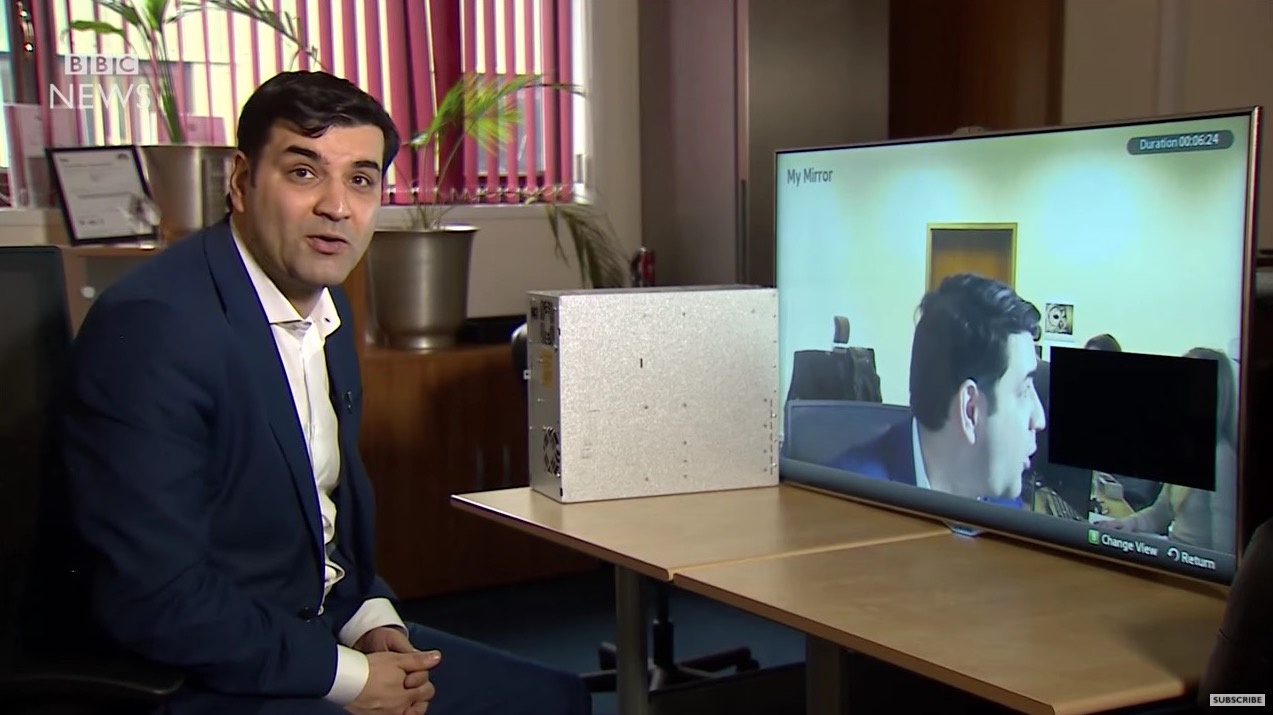So, is your TV really spying on you for the CIA, like WikiLeaks suggests?


A free daily email with the biggest news stories of the day – and the best features from TheWeek.com
You are now subscribed
Your newsletter sign-up was successful
The FBI has launched an investigation into who leaked thousands of purported CIA documents released by WikiLeaks on Tuesday, but the FBI and CIA weren't the only ones scrambling to respond to the trove of sensitive documents detailing surveillance technologies. Major tech companies like Apple, Microsoft, and Samsung also issued statements assuring customers that any vulnerabilities that might allow the CIA to use phones, tablets, TVs, and other consumer electronics as surveillance tools had either been patched or are urgently being looked into.
"Protecting consumers' privacy and the security of our devices is a top priority at Samsung," the Korean company said, responding to one of the most eye-catching tidbits, about the CIA being able to secretly listen in on conversations through Samsung smart TVs. "We are aware of the report in question and are urgently looking into the matter." So, can the CIA really eavesdrop on you though your TV? BBC News took a look and said that yes, it probably could — at least in theory.
But there are a lot caveats, even if you discard the legal obstacles — the CIA is prohibited from spying on people in the U.S. and "does not do so," spokesman Ryan Trapani said Wednesday. First, the leaked documents — which the CIA hasn't officially confirmed as real — only implicate Samsung smart TVs from 2012 and 2013 running older versions of Samsung firmware (1111, 1112, 1116). Also, "the WikiLeaks document describes the hacking of individual, targeted devices," The Washington Post notes, and "the CIA needed to plug a USB drive into a television to get the hack to work." Maybe the CIA came up with a way to infect smart TVs remotely, but there's no proof in the documents, which date from 2013 to 2016.
The Week
Escape your echo chamber. Get the facts behind the news, plus analysis from multiple perspectives.

Sign up for The Week's Free Newsletters
From our morning news briefing to a weekly Good News Newsletter, get the best of The Week delivered directly to your inbox.
From our morning news briefing to a weekly Good News Newsletter, get the best of The Week delivered directly to your inbox.
Second, if you are concerned about eavesdropping via your smart TV, you can just turn off the voice recording capabilities in the TV's settings menu — it is under "Smart Features," "Voice Recognition" on Samsung TVs. That's not a bad idea, anyway, since TV manufacturers have had to settle charges that they invaded customers' privacy themselves through TV sets. Still, "for the vast majority of us, this does not apply to us at all," Jan Dawson, an industry analyst at Jackdaw Research, tells The Washington Post. "There's no need to worry for any normal law-abiding citizen, based on what I've seen."
A free daily email with the biggest news stories of the day – and the best features from TheWeek.com
Peter has worked as a news and culture writer and editor at The Week since the site's launch in 2008. He covers politics, world affairs, religion and cultural currents. His journalism career began as a copy editor at a financial newswire and has included editorial positions at The New York Times Magazine, Facts on File, and Oregon State University.
-
 Crisis in Cuba: a ‘golden opportunity’ for Washington?
Crisis in Cuba: a ‘golden opportunity’ for Washington?Talking Point The Trump administration is applying the pressure, and with Latin America swinging to the right, Havana is becoming more ‘politically isolated’
-
 5 thoroughly redacted cartoons about Pam Bondi protecting predators
5 thoroughly redacted cartoons about Pam Bondi protecting predatorsCartoons Artists take on the real victim, types of protection, and more
-
 Palestine Action and the trouble with defining terrorism
Palestine Action and the trouble with defining terrorismIn the Spotlight The issues with proscribing the group ‘became apparent as soon as the police began putting it into practice’
-
 TikTok secures deal to remain in US
TikTok secures deal to remain in USSpeed Read ByteDance will form a US version of the popular video-sharing platform
-
 Unemployment rate ticks up amid fall job losses
Unemployment rate ticks up amid fall job lossesSpeed Read Data released by the Commerce Department indicates ‘one of the weakest American labor markets in years’
-
 US mints final penny after 232-year run
US mints final penny after 232-year runSpeed Read Production of the one-cent coin has ended
-
 Warner Bros. explores sale amid Paramount bids
Warner Bros. explores sale amid Paramount bidsSpeed Read The media giant, home to HBO and DC Studios, has received interest from multiple buying parties
-
 Gold tops $4K per ounce, signaling financial unease
Gold tops $4K per ounce, signaling financial uneaseSpeed Read Investors are worried about President Donald Trump’s trade war
-
 Electronic Arts to go private in record $55B deal
Electronic Arts to go private in record $55B dealspeed read The video game giant is behind ‘The Sims’ and ‘Madden NFL’
-
 New York court tosses Trump's $500M fraud fine
New York court tosses Trump's $500M fraud fineSpeed Read A divided appeals court threw out a hefty penalty against President Trump for fraudulently inflating his wealth
-
 Trump said to seek government stake in Intel
Trump said to seek government stake in IntelSpeed Read The president and Intel CEO Lip-Bu Tan reportedly discussed the proposal at a recent meeting
